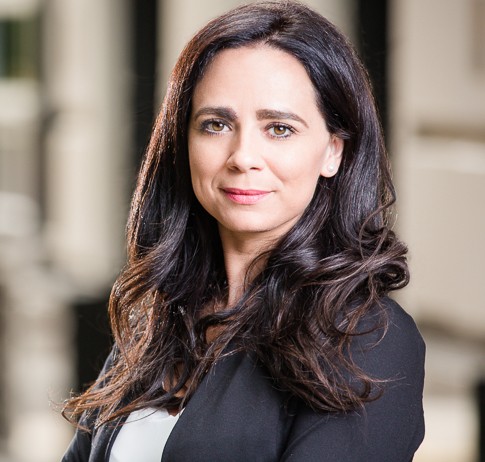Article
55 years of LGBTQ+ Pride and protest: where are we now?
31 May 2024 | 3 minute read
It is 55 years since the uprising at The Stonewall Inn in Greenwich Village, New York, which is globally recognised as sparking the gay rights movement around the world. A demonstration marked the first anniversary of the Stonewall riots which has now evolved into Pride parades and marches in cities and towns around the world.
Perceived largely as a celebration, the Pride month of June is a time to reflect on progress but also on the challenges still faced by many LGBTQ+ individuals and families today. As we have seen recently in the US, rights can be revoked and social attitudes can change, with harmful results.
This year also marks the 52nd anniversary of the inaugural Pride march that the Gay Liberation Front organised in London in 1972. Whilst there is a lot to celebrate in terms of achievements, the LGBTQ+ community is still facing huge challenges and the fight for equality, education and understanding goes on.
In Britain, still only half of lesbian, gay, and bi people and trans people feel able to be open about their sexual orientation and/or gender identity to their whole family. 1Moreover, a third of bi people cannot be open about their sexual orientation with anyone in their family2.
Amid a broader mental health crisis in the UK, half of the LGBTQ+ community experience depression3, with one in eight LGBT people aged 18-24 attempting to end their own life.4
The UK is usually considered liberal, but there has been an 11% increase in hate crimes against trans people in a single year and 186% increase over the last five years. Indeed, hate crimes on the basis of sexual orientation are still up by 112%5 . It is easy to assume that things have improved substantially in western countries, but these statistics are worrying, particularly with far right groups gaining momentum in online forums.
Globally, there are still 64 countries that expressly criminalise same-sex relations. Intimacy between males is criminalised in all these countries, and 40 criminalise intimacy between females.6
View a map of countries which criminalise LGBT people (provided by The Human Dignity Trust).
The vast majority of criminalisation is still in place in many African countries, in Asia and some Caribbean countries. The punishment imposed varies between up to one year of imprisonment in five countries and the death penalty in 12 countries.
Impact and action
Criminalisation of same-sex relations has detrimental effects on members of the LGBTQ+ community, who are subject to violence, threats, harassment and are deprived of their freedom of speech or simply being open about themselves. In some countries the threat of violence and imprisonment is very real, forcing many to live a lie in order to be accepted within their communities and avoid persecution.
This all makes for grim reading, but it is important to note the progress which is being made. For example, in Singapore same sex relationships were officially legalised in 2022, but full marriage equality remains blocked. India decriminalised homosexual activity in 2018, though there are still many social and legal barriers for the community. While there is so much more to be done, these really are major steps forward for LGBTQ+ communities in such countries, and it shows that activism can create meaningful change.
International and domestic courts often play an important role towards decriminalisation of same-sex relations. For example, in April of this year, the High Court of Dominica found that laws criminalising consensual same-sex sexual activity are unconstitutional and void7. Dominica remained one of the few countries in the Western Hemisphere with these laws until recently. However, there are appeals ongoing in Jamaica and St Vincent and the Grenadines to challenge the courts' decisions that found against decriminalisation.8
Lawyers and the law play a key role in advancing the rule of law and improving equality in our society and, therefore, improving the rights of the members of the LGBTQ+ community. Whilst there are unfortunately still a lot of challenges the community needs to address, as Martin Luther King said, "the arc of the moral universe is long, but it bends towards justice".
Pride 2024
We stand with our LGBTQ+ colleagues and clients throughout Pride, and every day.
[2] See https://www.stonewall.org.uk/resources/lgbt-britain-home-and-communities-2018)
[3] See https://www.stonewall.org.uk/resources/lgbt-britain-health-2018#:~:text=Key%20findings,life%20in%20the%20last%20year.
[4] See https://www.stonewall.org.uk/resources/lgbt-britain-health-2018#:~:text=Key%20findings,life%20in%20the%20last%20year.
[5] See https://www.stonewall.org.uk/about-us/news/new-data-rise-hate-crime-against-lgbtq-people-continues-stonewall-slams-uk-gov-
[6] See https://www.humandignitytrust.org/lgbt-the-law/
[7] See https://www.humandignitytrust.org/news/human-dignity-trust-applauds-court-decision-in-dominica-striking-down-laws-that-criminalised-same-sex-intimacy/
[8] See https://www.humandignitytrust.org/news/human-dignity-trust-applauds-court-decision-in-dominica-striking-down-laws-that-criminalised-same-sex-intimacy/
